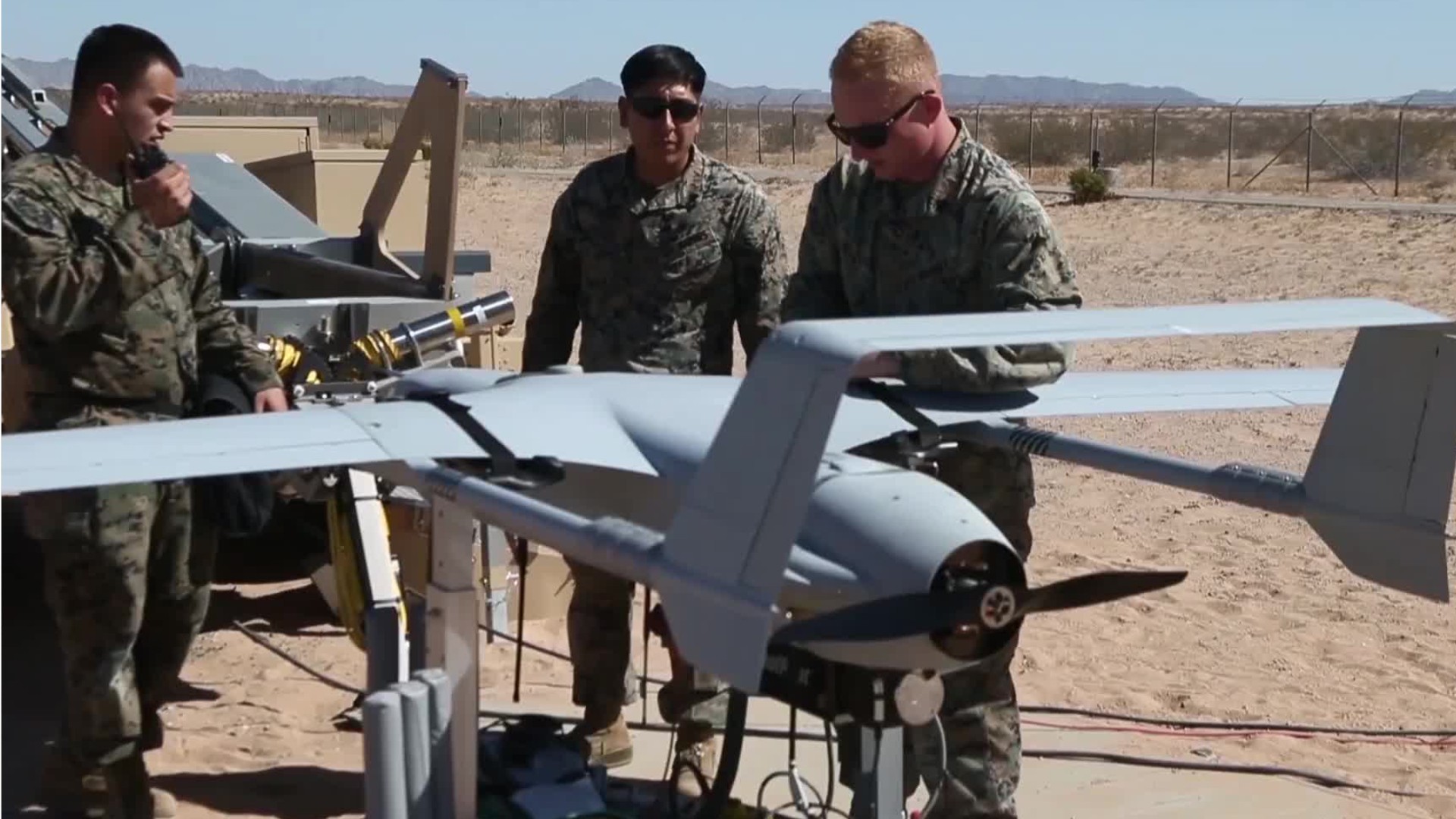Electro-Mechanical & Mechatronics Technologists & Technicians
Electro-Mechanic, Electromechanical Technician (EM Technician), Electronics Technician (Electronics Tech), Mechanical Technician (Mechanical Tech)
 Select a military branch to see samples.
Select a military branch to see samples.
Advanced Fighter Aircraft Integrated Avionics; Airborne Mission Systems Specialist Craftsman; Airborne Mission Systems Specialist Journeyman, RQ-4; Aircraft Armament Systems Journeyman; Experimental Test Remotely Piloted Aircraft Pilot; Heavy Aircraft Integrated Avionics Helper, C4ISR Mission Systems (E-3, E-4, E-7, EC-130H, RC-135, VC-25); Munitions Systems; Remotely Piloted Aircraft (RPA) Pilot; Remotely Piloted Aircraft (RPA), MQ-9; Sensor Operator Journeyman
Allied Trades Specialist; Automatic Test Systems Operator/Maintainer; Computer/Detection Systems Repairer; Electronic Warfare Technician; Intelligence Systems Integration and Maintenance Technician; MQ-1 Operator; Multiple Launch Rocket System (MLRS) Repairer; PATRIOT System Repairer; RQ-7 Repairer; Test, Measurement, and Diagnostic Equipment (TMDE) Maintenance Support Specialist
Diver; Electronics Specialty; Electronics Technician
Aircraft Maintenance (Fixed-Wing); Assault Amphibious Vehicle (AAV)/Assault Combat Vehicle (ACV) Repairer/Technician; Blackjack (MQ-21) Specialist; Electro-Optical Ordnance Repairer; Ground Electronics Systems Maintenance Technician; Light Armored Vehicle (LAV) Repairer/Technician; Micro-Miniature Repairer; Small Unmanned Aircraft System (SUAS) Operator; Tactical Remote Sensor System (TRSS) Maintainer; VMU MQ-9 Officer
Advanced Machinery Repairman; Aircraft Radar Altimeter Equipment IMA Technician; Communications Technician; Expeditionary Force - Unmanned Systems (Unmanned Air Vehicle (UAV)/Unmanned Surface Vehicle (USV)/USG) Maintenance; Gun Computer System (GCS) MK 160 MOD 9/10 Fire Control Technician; Master Diver; MQ-8B/C Air Vehicle Operator (AVO); Planning Series - MQ-4C Electronic Warfare Mission Payload Operator (EWMPO) Level 400 Instructor; SSBN Class Electronic Warfare Support (ES) Equipment Maintenance Technician; Tactical TOMAHAWK Weapon Control System (TTWCS) Operation and Maintenance (OandM) Technician
Remotely Piloted Aircraft (RPA) Pilot; Remotely Piloted Aircraft (RPA) Pilot Craftsman, MQ-9; Remotely Piloted Aircraft (RPA) Pilot Journeyman, RQ-4; Sensor Operator Apprentice, AC-130J; Sensor Operator Apprentice, MQ-9; Sensor Operator Craftsman, AC-130W; Sensor Operator Craftsman, RQ-4; Sensor Operator Journeyman, AC-130W; Sensor Operator Journeyman, RQ-4; Sensor Operator Superintendent, AC-130W
What they do:
Operate, test, maintain, or adjust unmanned, automated, servomechanical, or electromechanical equipment. May operate unmanned submarines, aircraft, or other equipment to observe or record visual information at sites such as oil rigs, crop fields, buildings, or for similar infrastructure, deep ocean exploration, or hazardous waste removal. May assist engineers in testing and designing robotics equipment.
On the job, you would:
- Test performance of electromechanical assemblies, using test instruments such as oscilloscopes, electronic voltmeters, or bridges.
- Install or program computer hardware or machine or instrumentation software in microprocessor-based systems.
- Read blueprints, schematics, diagrams, or technical orders to determine methods and sequences of assembly.
Knowledge
Engineering and Technology
- computers and electronics
- mechanical
Arts and Humanities
- English language
Manufactured or Agricultural Goods
- manufacture and distribution of products
Math and Science
- arithmetic, algebra, geometry, calculus, or statistics
Skills
Basic Skills
- keeping track of how well people and/or groups are doing in order to make improvements
- thinking about the pros and cons of different ways to solve a problem
Problem Solving
- noticing a problem and figuring out the best way to solve it
People and Technology Systems
- thinking about the pros and cons of different options and picking the best one
- figuring out how a system should work and how changes in the future will affect it
Abilities
Hand and Finger Use
- keep your arm or hand steady
- put together small parts with your fingers
Ideas and Logic
- make general rules or come up with answers from lots of detailed information
- notice when problems happen
Verbal
- listen and understand what people say
- communicate by writing
Visual Understanding
- quickly compare groups of letters, numbers, pictures, or other things
Personality
People interested in this work like activities that include practical, hands-on problems and solutions.
They do well at jobs that need:
- Cautiousness
- Attention to Detail
- Dependability
- Intellectual Curiosity
- Achievement Orientation
- Perseverance
Technology
You might use software like this on the job:
Analytical or scientific software
- ESRI ArcGIS software
- The MathWorks MATLAB
Presentation software
- Microsoft PowerPoint
Computer aided design CAD software
- Autodesk AutoCAD
- Dassault Systemes SolidWorks
Education
Education: (rated 3 of 5)
certificate after high school or
associate's degree
usually needed
associate's degree
usually needed
Job Outlook
Below Average
New job opportunities are less likely in the future.
Explore More
- Aerospace Engineering & Operations Technologists & Technicians
- Avionics Technicians
- Calibration Technologists & Technicians
- Electrical & Electronic Engineering Technologists & Technicians
- Robotics Technicians
You might like a career in one of these industries:
See more details at O*NET OnLine about Electro-Mechanical & Mechatronics Technologists & Technicians.





